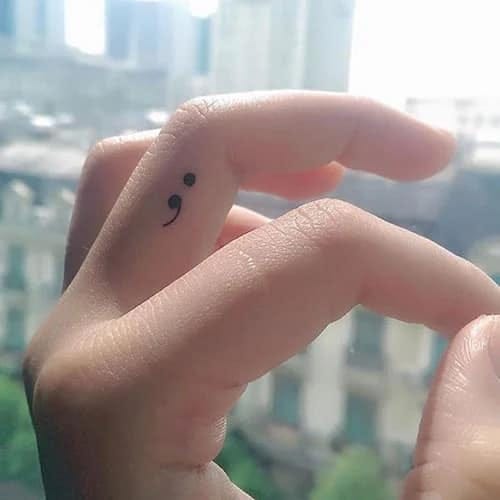The Power of Punctuation
Project Semicolon; your story isn't over

During one of my recent prison visits with Chase, we had a long conversation about the many deep scars on his wrists, forearms, biceps, legs, and neck. For years—before and after the death of his family—Chase was a cutter, and had also attempted suicide multiple times. His last major attempt was the summer of …
Keep reading with a 7-day free trial
Subscribe to Minding the Gaps to keep reading this post and get 7 days of free access to the full post archives.

